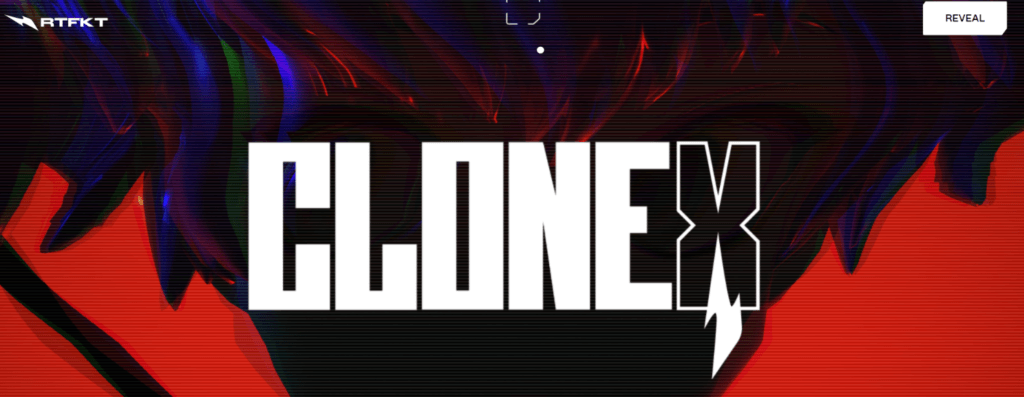Content creators and NFT artists can earn and control their digital asset’s royalties. This article explains how NFT royalties work and how creators can earn from them.
Artists and content creators are discovering that NFT royalties can help them earn in perpetuity from sales on the secondary market.
Table of Contents
What Are NFT Royalties?
NFT royalties are instant payments to the owner of the NFT after a secondary sale on their asset assets. In the business and art world, royalties are usually paid as a percentage of sales or profit to the creator based on the first sale. With NFTs, royalties are normally determined by the creator during the minting process.
A percentage from the royalties of the sale of an NFT is paid to the creator after the asset is sold on an NFT marketplace. The average NFT royalty is usually between 5 and 10%. The developer can set their royalty portion on most NFT marketplaces, and payments are made automatically after each subsequent sale on the secondary market.
NFT developers can earn passive cash through perpetual NFT royalties, which means they will continue to earn from their NFTs indefinitely as buyers trade NFTs. It’s akin to an author earning from sales of their books on eBay or in second-hand book stores.
Original creators have the option of raising funds for causes that are important to them. While not every NFT is profitable for the owner, some of the most successful NFTs have made millions in sales.
How NFT Royalties Work
A royalty can be set as a percentage of the secondary sales, which the creator can set at the time of minting the work. Your NFT will earn you the percentage you (the project creator… not the trader) choose on all future sales of your non-fungible token once it has been minted.
While not all marketplaces offer royalties, some, such as Rarible, allow you to enter royalties while minting your NFT.
Suppose you’ve uploaded an NFT artwork to Rarible. A fan purchases it for, say, 8 ETH. So you’ve earned a total of 8 ETH (Ether). You’ve also included a clause in the NFT that says you’ll get 10% of the proceeds if a sale occurs.
Your painting is now auctioned for a higher price in the marketplace by your buyer. Your reputation has most likely grown, so your work’s worth has increased as well. Suppose your buyer will sell it for 200ETH. You will receive 20 ETH from this sale because you have previously precoded a 10% royalty into the NFT.
Again, the new owner may sell it for a greater price, and you will receive a 10% reward on the new sale price. Your work will provide you with a steady stream of income. As a result of NFT royalties, you will profit from every sale of your work for as long as it sells. It is absolutely a great system!
All of this is made possible by blockchain technology, or Distributed Ledger Technology. This form of ledger protects the work’s integrity and validity. It also features automatic mechanisms to ensure that when the smart contract’s requirements are met, it takes the appropriate action. It can complete its task without the assistance of an external agent or middleman.
Thanks to blockchain technology and smart contracts, the creator receives payments into their wallet when an NFT is bought, sold or traded. This mitigates the possibility of the artist or author being defrauded of royalties.
Who Benefits From NFT Royalties?
NFT’s royalties benefit musicians, content creators, and creative artists. A creator can use funds from NFT mints and secondary sales. They can pay themselves or invest back into future creative projects and also earn a full-time living from Web 3.0. They can bypass middlemen like art dealers, agents and publishers.
Jaques Green, an electronic musician, received roughly $27,000 in royalties for a song he released in 2011. Mike Winkelmann, who made headlines when he sold his artwork for a large sum of money, has set up his NFT to pay a 10% royalty on further sales.
Artists like Kings of Leon, Ozuna, Steve Aoki, and others actively utilize this latest technology to earn sales and royalties. As you can see, it can be a significant source of income for both the creator and the buyer.
Why Creators Should Use NFT Royalties

NFT royalties provide a good opportunity for artists, content creators, and game developers to profit from secondary sales in a previously unavailable way.
While the token can be sold, the inventors can retain ownership of the underlying copyrights, like with the Clone X NFT project. Alternatively, creators can sell commercial rights to collectors or give them away entirely, like with the Goblintown NFT project.
Read our guide: What is a CC0 NFT?
Due to their control rights, the new owners can also benefit from the royalties paid for the NFTs. Not many marketplaces permit this, but Bluebox, a freshly launched site, is one of them.
Some caution is required, as possible intellectual property cases have yet to be adequately formulated in such transactions. The tax implications must also be examined, as royalties and earnings will be treated as capital gains in many cases.
Selling NFTs Off-Chain
Many people might be asking how NFT royalties work when an investor resells the NFT outside of the original platform? The terms of the platform determine it.
On these NFT marketplaces, users must be cautious about what they agree to. More crucially, if a buyer receives an NFT with a royalty attached, that NFT can be nullified by selling it off-chain. This issue must be addressed.
Regulations and NFT Royalties
Unfortunately, some nefarious actors use NFTs to extract cash from collectors and the community. They also set ridiculously high NFT royalty rates and then stop working on a project after mint, something known as a “slow rug”
Read our guide: What is a rug pull in NFTS?
Anti-money laundering and securities law and measures are two regulatory options to look out for in the future.
The movement of tokens, specifically those with a strong dollar value, is being monitored by regulators. These NFT tokens may arouse the suspicions of state regulators looking for money launderers when traders use artwork as an underlying asset. As NFTs are so new, it’s hard for regulators to protect buyers and collectors from nefarious actors. So, DYOR!
NFT Royalties: The Final Word
Although NFTs have a variety of benefits and appealing characteristics, NFT royalties are a game-changing feature for struggling artists and creators. The ancient practice of record labels, major businesses, and speculators making millions off the work of starving artists is hopefully coming to an end.

